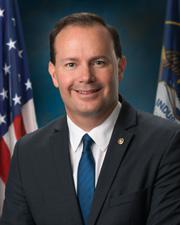Federal Reserve Board Abolition Act
3/28/2025, 11:51 AMCongress
119
Number
S - 869
Introduced on
2025-03-05
# Amendments
0
Sponsors

Status of Legislation
Bill Introduced
Introduced to House
House to Vote
Introduced to Senate
Senate to Vote
Purpose and Summary
Read twice and referred to the Committee on Banking, Housing, and Urban Affairs.
Bill 119 s 869, also known as the "Federal Reserve Abolition Act," is a proposed piece of legislation that aims to eliminate the Board of Governors of the Federal Reserve System and the Federal Reserve banks. The bill also seeks to repeal the Federal Reserve Act, which established the Federal Reserve System in 1913.
If passed, this bill would effectively dissolve the Federal Reserve System, which serves as the central banking system of the United States. The Federal Reserve plays a crucial role in regulating the country's monetary policy, overseeing the banking system, and maintaining financial stability.
Proponents of the bill argue that the Federal Reserve has too much power and influence over the economy, and that its actions can have negative consequences for the American people. They believe that abolishing the Federal Reserve would lead to a more stable and prosperous economy. Opponents of the bill, however, argue that the Federal Reserve plays a vital role in managing the economy and preventing financial crises. They warn that abolishing the Federal Reserve could have serious repercussions, including destabilizing the financial system and causing economic turmoil. Overall, Bill 119 s 869 is a controversial piece of legislation that raises important questions about the role of the Federal Reserve in the US economy. It remains to be seen whether this bill will gain enough support to pass in Congress.
If passed, this bill would effectively dissolve the Federal Reserve System, which serves as the central banking system of the United States. The Federal Reserve plays a crucial role in regulating the country's monetary policy, overseeing the banking system, and maintaining financial stability.
Proponents of the bill argue that the Federal Reserve has too much power and influence over the economy, and that its actions can have negative consequences for the American people. They believe that abolishing the Federal Reserve would lead to a more stable and prosperous economy. Opponents of the bill, however, argue that the Federal Reserve plays a vital role in managing the economy and preventing financial crises. They warn that abolishing the Federal Reserve could have serious repercussions, including destabilizing the financial system and causing economic turmoil. Overall, Bill 119 s 869 is a controversial piece of legislation that raises important questions about the role of the Federal Reserve in the US economy. It remains to be seen whether this bill will gain enough support to pass in Congress.
Alternative Names
Official Title as IntroducedA bill to abolish the Board of Governors of the Federal Reserve System and the Federal reserve banks, to repeal the Federal Reserve Act, and for other purposes.
Display TitleA bill to abolish the Board of Governors of the Federal Reserve System and the Federal reserve banks, to repeal the Federal Reserve Act, and for other purposes.
Official Title as IntroducedA bill to abolish the Board of Governors of the Federal Reserve System and the Federal reserve banks, to repeal the Federal Reserve Act, and for other purposes.
Policy Areas
Finance and Financial Sector
Comments
Most relevant
Recent Activity
Latest Action3/5/2025
Read twice and referred to the Committee on Banking, Housing, and Urban Affairs.